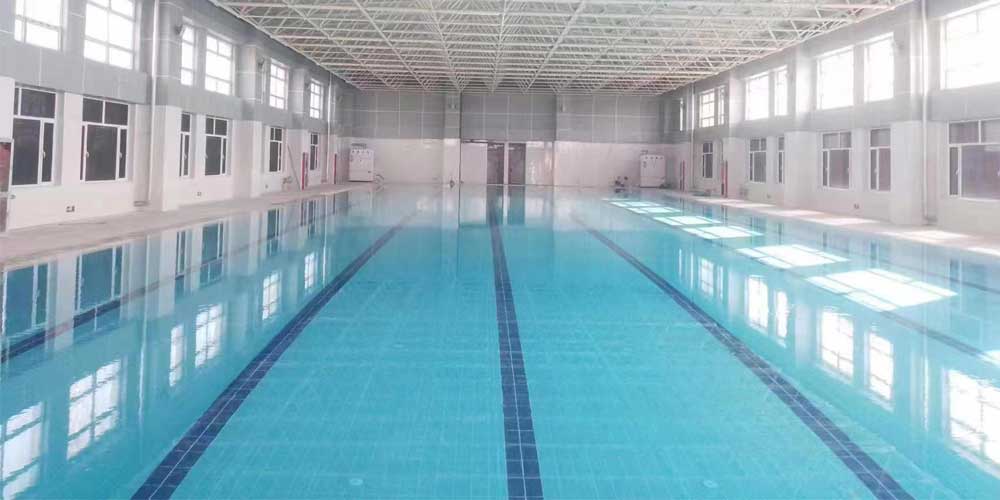Le piscine sono strutture comuni in molte case, hotel e luoghi ricreativi. Offrono uno spazio in cui rilassarsi e fare esercizio fisico. Quando la piscina viene utilizzata, molte sostanze organiche e altri inquinanti vengono rilasciati nell'acqua attraverso l'aria, l'acqua piovana e i bagnanti. In questo periodo, è importante mantenere la piscina pulita e la qualità dell'acqua sicura.
Come mantenere l'acqua della piscina pulita e sicura?
Quando si inizia a pensare a come mantenere la qualità dell'acqua sicura, i disinfettanti a base di cloro sono la scelta migliore. I disinfettanti a base di cloro rappresentano la soluzione più semplice. I disinfettanti a base di cloro possono uccidere microrganismi e batteri presenti nell'acqua, contribuendo a prevenire la diffusione di malattie. Allo stesso tempo, il cloro ha anche un certo effetto nel prevenire la crescita di alghe in piscina. Può mantenere l'acqua limpida e contribuire a decomporre lo sporco. Ecco perché i disinfettanti a base di cloro sono così importanti per le piscine. E il suo contenuto nell'acqua è più facile da rilevare. È possibile misurare il livello attuale di cloro e calcolarne il dosaggio con il metodo più semplice.
In che modo i disinfettanti al cloro mantengono sicura l'acqua della piscina?
I disinfettanti a base di cloro possono produrre acido ipocloroso (noto anche come "cloro disponibile, cloro libero") dopo l'idrolisi in acqua. L'acido ipocloroso ha un forte effetto disinfettante e battericida ed è la chiave per la disinfezione delle piscine. Uccide batteri come la salmonella e l'Escherichia coli. Il cloro in piscina elimina gli odori e migliora le condizioni di nuoto.
Perché a volte la piscina ha odore di cloro?
Nella manutenzione generale, il livello di cloro libero nella piscina deve essere mantenuto a un livello normale (1-4 ppm) per ottenere un buon effetto disinfettante. Se il livello di cloro libero è inferiore al livello normale, la capacità disinfettante diminuisce e le alghe sono facili da sviluppare. Di solito, in questo momento, il cloro combinato (chiamato anche cloramina, prodotto dalla reazione del cloro libero con la materia organica presente in sostanze come urina, sudore e cellule della pelle) nell'acqua aumenta, provocando un odore pungente di cloro che irrita gli occhi e la pelle dei bagnanti. A questo punto, è necessario aggiungere cloro a sufficienza e adottare una serie di misure.
Per i tipi di disinfettanti a base di cloro e come sceglierli, fare riferimento alla sezione "Quale tipo di cloro è adatto per il trattamento delle piscine?"
Il cloro irrita gli occhi dei nuotatori?
Potresti pensare che il cloro in piscina ti influenzi se i tuoi occhi prudono o diventano rossi dopo aver nuotato. Questo ti rende più timoroso delle piscine clorate. In realtà, non è così. I normali livelli di cloro libero generalmente non causano effetti negativi ai nuotatori. La causa di questo sintomo è in gran parte dovuta all'elevata concentrazione di cloro combinato (cloramina) nell'acqua, che è la "colpevole" della tua reazione avversa.
Informazioni sulla manutenzione della disinfezione della piscina
Corretta manutenzione e test del cloro: una corretta manutenzione e test regolari sono essenziali per garantire la qualità dell'acqua in piscina. Solitamente due volte al giorno.
Monitoraggio regolare dei livelli di cloro: questo aiuta a garantire che la concentrazione di cloro rientri nell'intervallo raccomandato per una nuotata sicura.
pH bilanciato: mantenere il pH corretto è essenziale affinché il cloro agisca efficacemente. L'intervallo di pH ideale per le piscine è generalmente compreso tra 7,2 e 7,8. Valori di pH al di fuori di questo intervallo influiscono sulla capacità disinfettante del cloro.
I disinfettanti per piscine sono essenziali per la manutenzione della piscina, che è strettamente correlata alla salute dei bagnanti. Per ulteriori domande sulla manutenzione e sui prodotti chimici per piscine, potete scrivermi a sales|@yuncangchemical.com.
Data di pubblicazione: 05-08-2024


